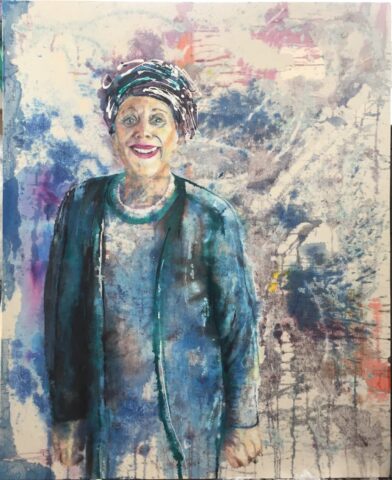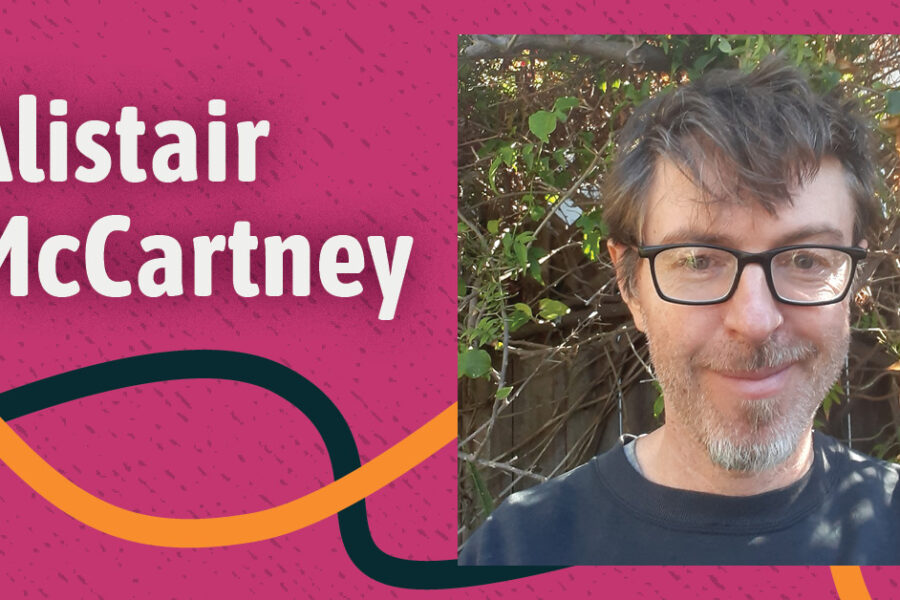“My first memory of Sandi is her laugh,” says Dr. Colin Ward, describing his late Antioch Seattle colleague Dr. Sandra Meggert. “She had the ability to hold space, to allow humor to be a way to talk about pain, about grief.”
After Meggert’s death in 2016, many found that she had left this behind: a legacy of humor that helped them navigate their grief over losing a beloved colleague and friend. But they found a more tangible legacy as well. In her estate she had included funding for a new scholarship to be established in her name, supporting Black, Indigenous, and people of color students in the counseling programs where she taught. The Sandra Meggert Scholarship, as it is known, launched earlier this year and continues to accept applicants for its one-time, $5,000 award intended for students beginning their studies in the PhD in Clinical Education Supervision or the MA in Clinical Mental Health Counseling.
By creating this scholarship, Meggert continued the work that she was the work of her life: to expand access to and the meaningful impact of the work of counselors. It was work she took seriously, but also with a sense of humor. After all, as Ward says, “She taught us the value of humor: it helps us to breathe a bit better.”
A Cherished Legacy Among Colleagues
Meggert was a beloved faculty member within Antioch Seattle’s MA in Clinical Mental Health Counseling Program. Her colleagues report that she was always there for her students, peers, and friends. She was deeply aware of and in tune with the inherent interconnectivity of all beings. And she also held a special affinity for whales.

“The whale was, in her eyes, something very steady, very sacred, and very connected to the earth,” says Dr. Katherine Fort, another of Meggert’s colleagues in the counseling program. Meggert saw whales as “very intelligent, fluid,” explains Fort, and she saw those qualities as ideal worth cultivating as a human. As Fort says, “Those were all qualities she had and that she saw in us.”
Before she passed away in 2016, Meggert gave Fort a special whale figurine from her collection. It’s an object that Fort cherishes to this day: “It was a reminder that we possessed those qualities as well. It was her way of showing that we were connected to her.”
For Dr. Mariaimeé Gonzalez, memories of her cherished colleague are concentrated in the very name of the counseling program’s honor society. Within the Chi Sigma Iota Counseling Academic and Professional Honor Society International, Antioch Seattle’s chapter is called Omega Mu Gamma. Or, for short, OMG. “I remember walking into Sandi’s office to find her laughing to herself, which if you knew Sandi, this happened often,” says Gonzalez. “Sandi looked at me with her piercing bright eyes and a big smile and said, ‘We are going to be called OMG!’” (Read our full article about the founding of the honor society.)
For Meggert, humor was a key part of life—and of her scholarship. She felt that humor was an important relational tool within the counseling context. And she even published an academic book, Creative Humor at Work: Living the Humor Perspective. In the book, she describes benefits and blocks to using humor, identifies areas where this has been an effective tool to ease stress and enhance communication, and even includes some strategies toward building a mental “Humor Kit” to be used whenever the need arises to support mental health.
All of this was of a piece with Meggert’s mission of bringing humor into counseling work. Meggert was deeply passionate about the importance of humor within the counseling fields, and she published books, lectured internationally, and taught classes on this very subject.
Beyond humor, Meggert’s professional life included passionate advocacy within the field of clinical counseling, a commitment to expanding the opportunities for current counselors, and work providing greater access for prospective counselors. She was interested in examining and fostering cross-cultural connections and exploring the human condition as a shared experience across the globe.
Establishing the Sandra Meggert Scholarship
Meggert believed that anyone that had the desire, commitment, and work ethic to become a counselor regardless of positionality, should have access to quality programs. This dedication to justice led directly to the creation of the Sandra Meggert Scholarship. She left the creation of the specific scholarship up to the current program leadership. “She trusted the department faculty, upon her death, to find the best way for this financial support to impact students in a positive way,” explains Fort. The faculty ended up reflecting on the way Meggert, in her career, had drawn attention to the barriers that could get in the way of Black, Indigenous, and people of color students trying to pursue higher education, and they decided to use the money she left to help students with these backgrounds to enter the field of counseling.
Unfortunately, the barrier of cost continues to grow higher and higher. Says Ward, Meggert’s colleague and longtime counseling faculty, “The cost of education has gone up, narrowing the door to the folks who can afford to come to graduate school.”
The scholarship Meggert endowed is dedicated to opening this door to prospective counselors. And the potential impacts of expanding access to this education are broad. Clinical mental health counseling was one of the first helping professions to adopt a strong social justice stance, and work continues across the profession to make it more just. This mission will be further fulfilled as more counselors enter the profession who identify as Black, Indigenous, and people of color. (Listen to Antioch’s Seed Field Podcast interview with faculty in the CMHC program at Antioch New England about decolonizing their curriculum.)
Demand for counselors is at an all-time high, with a global pandemic, international unrest, and a national reckoning creating widespread mental distress. The field of clinical mental health counseling is expanding, with universities receiving great numbers of applicants. Ward says that the Sandra Meggert Scholarship is perfectly suited to meet this heightened demand. As he says, “I can’t think of a better time than now to be a mental health advocate.”
With the creation of this scholarship, Meggert showed her commitment to the field of clinical mental health counseling, her confidence in future counselors, and her commitment to the counseling programs at Antioch Seattle. Her intention is clear: if you feel called to be of service to your community, there are people in need of service, and AUS can support you in obtaining those professional skills. As Ward explains, “It was her way of saying, ‘We believe in you.’”
Students beginning the counseling programs at Antioch Seattle can apply to the Sandra Meggert Scholarship application here.



